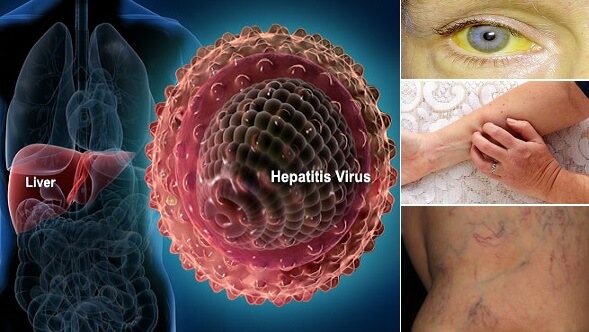An estimated 5 million Nigerians die annually from about 20 million that are infected with hepatitis.
The Executive Director of Community Health Advocacy Initiative (CHAIN), Juliana Iregbu-Ihejirika warned on Monday “there is an impending hepatitis epidemic looming over Nigeria and something needs to be done urgently to check the situation.
Advertisement
“There are five types of hepatitis: hepatitis A, B, C, D, and E. Understanding how the different types of hepatitis spread is the first key to prevention.
“Depending on the type, two main ways that hepatitis passes from person to person who had contact with infected blood or other body fluids, and contact with infected feces. Hepatitis A and E are excreted through the feces of an infected person. You can become infected with hepatitis A or E if you ingest contaminated food or water.
“Hepatitis types B, C, and D are spread primarily through contact with infected blood. Sexual transmission is a less common but still important route of exposure, especially for hepatitis B,” Iregbu-Ihejirika said in a statement.
According to her, there are vaccines that are available to protect an infected person against hepatitis A and B, as she encouraged members of the community to be immunized against Hepatitis A and B.
Advertisement
She added that regular hand wash and the frequent use of hand sanitizers can also protect individuals from hepatitis A and E which spreads through contaminated water and food.
Iregbu- Ihejirika however appealed to the Nigerian government at all tiers to make provision for free testing and vaccination for Nigerians since it remains the surest way to check the spread of the disease, stating that, “free but voluntary tests and vaccination can be organized for schools, government offices and at primary health care centers for the community people.”
The NGO is also advocating for increased commitment by the Nigerian government in pursuing the Sustainable Development Goals (SDGs) as it relates to health by at least honouring the 2001 Abuja Declaration Agreement of allocating at least 15 percent of the country’s annual budget to health.
“Since the declaration, Nigeria has not attained the pledged funding benchmark as the federal government has never voted more than six percent of its annual budget to the health sector. The highest percentage since the declaration was in 2012 when 5.95 percent of the budget was allotted to health.
“In the 2018 Budget proposal presented by President Muhammadu Buhari, he allocated N340.45 billion, representing 3.9 percent of the N8.6 trillion expenditure plan to the health sector. The allocation is less than the 4.16 percent and 4.23 percent made to the health sector by the administration in the 2017 and 2016 budgets.
Advertisement
“With the present attitude of the Nigerian government towards financing health programmes in Nigeria, achieving the SDGs of ending the epidemics of AIDS, tuberculosis, malaria and other communicable diseases by 2030 in Nigeria would never be attainable,” she observed.



